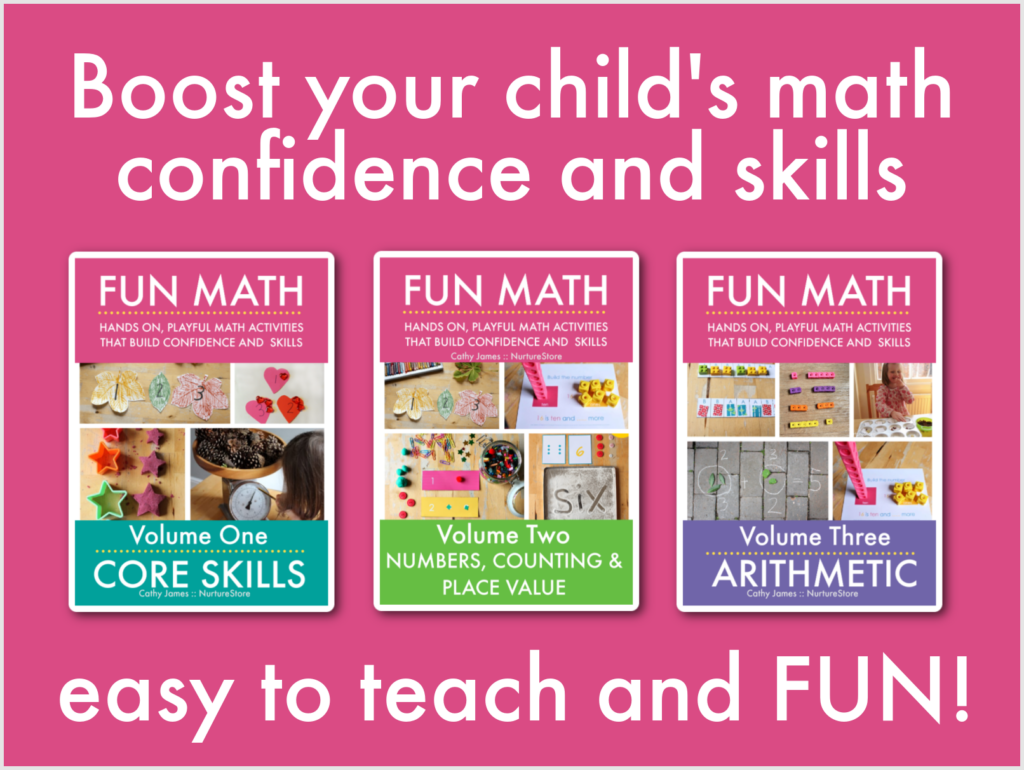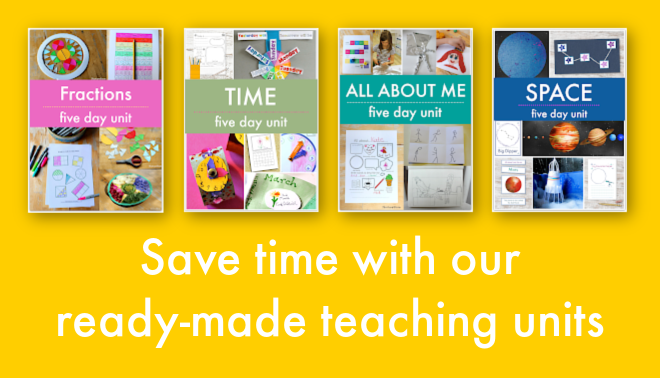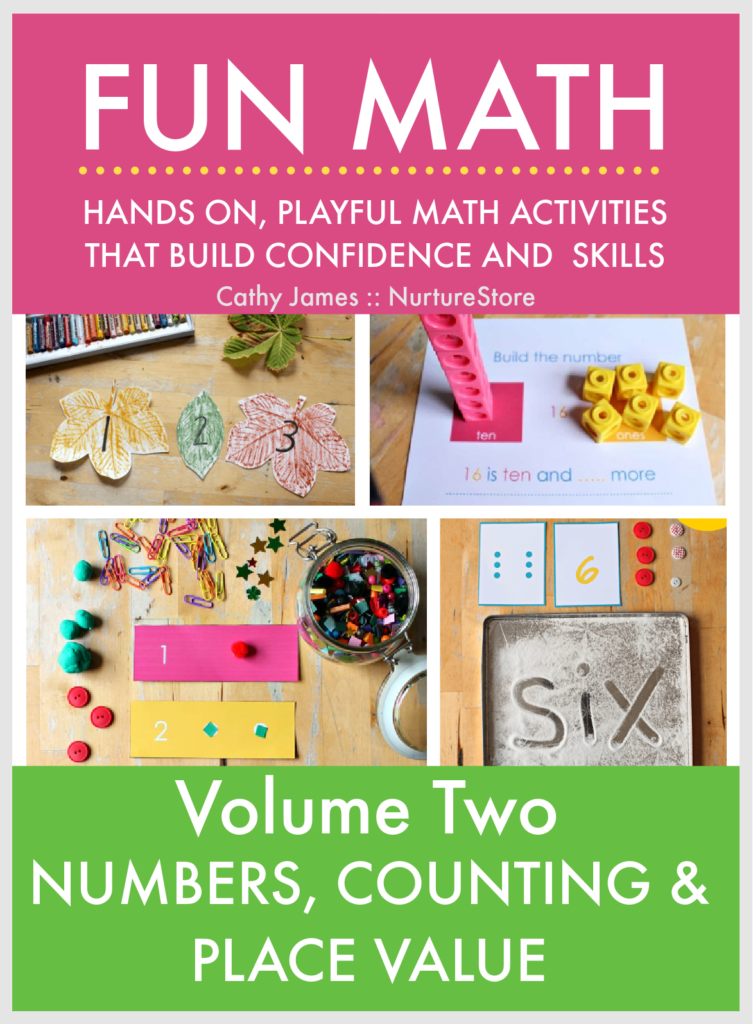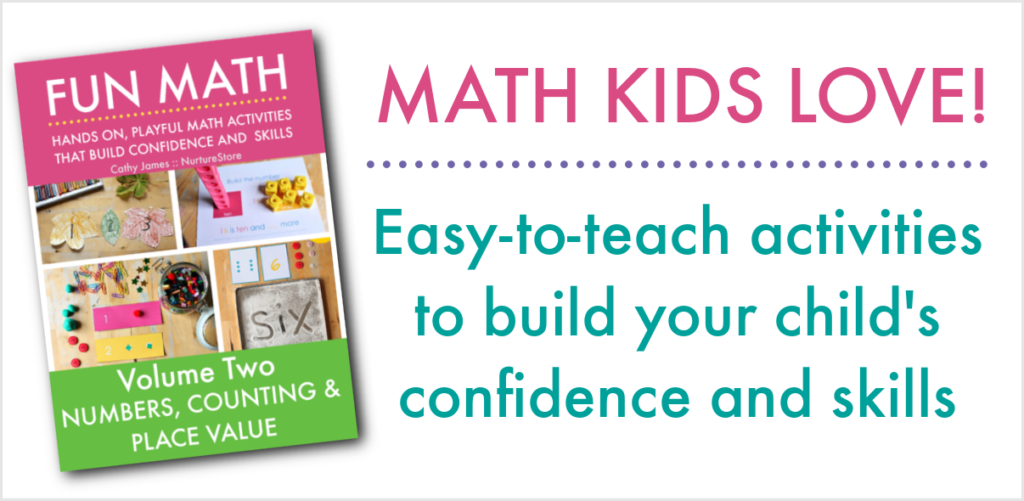Let’s look at how we can use real life to teach math skills to our children by showing them how we use math in everyday life.
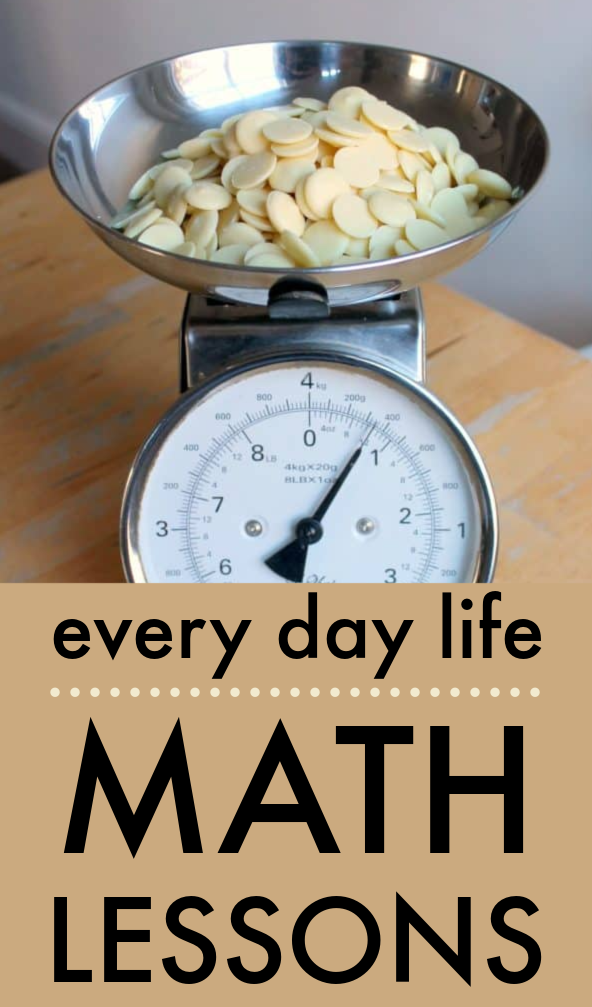
Real-life math lessons
We teach our children math because we recognise they need math skills to be competent adults. Knowing how to measure, tell the time, budget, and sequence plans are vital for a successful life and the best way to learn these things is to do these things. Our homes are full of math and there are so many vital skills we can pass on to our children just by including them in our everyday chores and responsibilities.
The hands-on activities in our Fun Math series are designed to run alongside math learning that children are experiencing by living in a home that includes them and encourages them to join in with what the adults are doing. Having seen math working in real life, you’ll be able to use the playful lessons in our Fun Math curriculum to develop their skills further, still through realistic, hands-on activities, by pinpointing the math concept they are seeing in their everyday life.
Parents, invite your children to be part of the family team. Teachers, have your children help run the class and school.
Try some of these real-lfe math activities, full of everyday math learning.
Magic Fun Math lessons!
Fun Math is an easy to teach, highly effective math curriculum based on play and hands-on learning.
All the lessons are designed to be fun and memorable, so children enjoy their lessons and feel confident.
The lessons are easy for teachers and parents to use, in class or at home.
These are the magic lessons where children really see, understand, and can apply math concepts. They are especially suited to children who don’t like math, lack confidence, don’t understand math the way they are currently being taught, or just want to play.
SEE MORE AND TRANSFORM YOUR MATH TEACHING HERE.
Matching skills
For very young children being able to discriminate patterns and pairs is an important mathematical building block and guess what’s great for building these skills: laundry!
Set your child in front of the laundry basket and have them match pairs of socks.
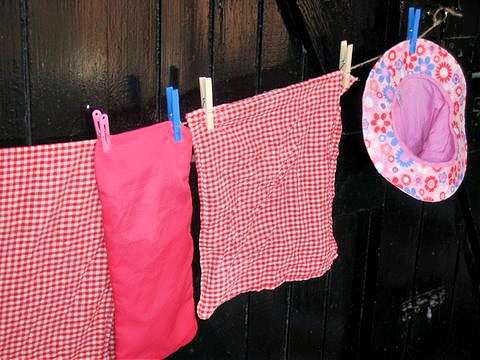
They can also sort clothing into piles for each person in the house and carry them to the correct rooms.
And match up two clothes pegs for each item of clothing to hang things on the line.
In school, children can match books to certain groups of children, and tidy up resources to back into their allocated places around the classroom.
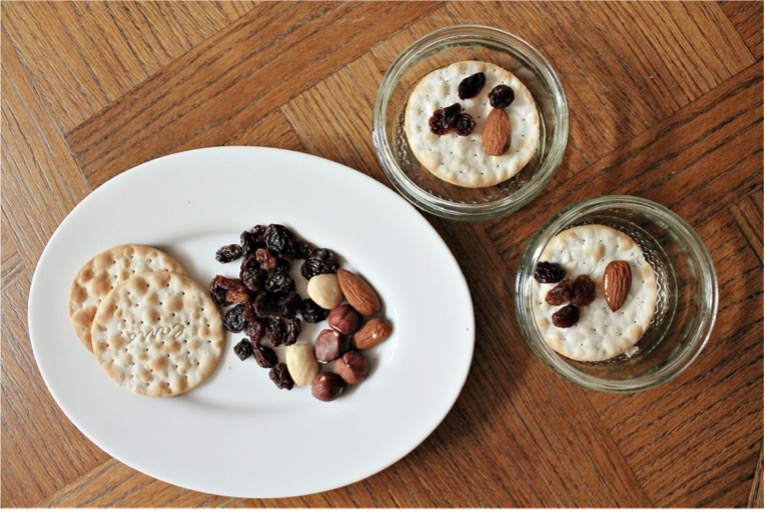
Counting skills
Counting can happen when you’re getting cups out to make a drink, laying knives and forks out as you set the table, and making sure everyone gets a cookie. This simple daily repetition is wonderful at building these first math skills for young children.
Where you have slightly larger quantities – perhaps counting banana slices, potatoes or even pieces of pasta – you can introduce skip counting in twos, threes or fives. This is the start of learning your times tables.
Use the ideas in Fun Math to make a number line and stick up a number line to make a number-rich display in your kitchen or classroom to support all your counting.
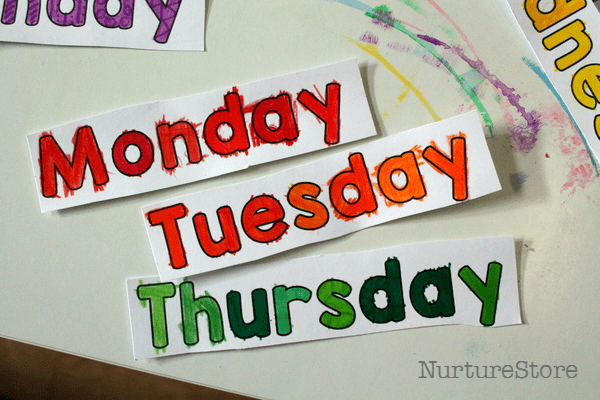
Learning about time and sequencing
We’re using time every day as we go about our life. It’s easy to pass these math lessons on to our children if we include them in what we’re doing and point out to them how we’re using time.
Make a calendar and show your children which day and month you’re on. The Fun Math printables include days of the week and months of the year spinners.
Plan your day together and pass on the concepts of order, sequencing, and sections of time. Which activity will you do first? How long will it take? Have you got enough time to do two things before lunch? What time do you need to get dinner started? Use the Fun Math clock printable to track your day.
You might also like to write a daily journal to track your weeks and write down a simple sequence of what you do each day.
Making a weekly menu plan together can incorporate days of the week, time, counting, measuring, sequencing, and budgeting.
All these conversations and activities give your children mathematical vocabulary and a practical understanding of this area of math.
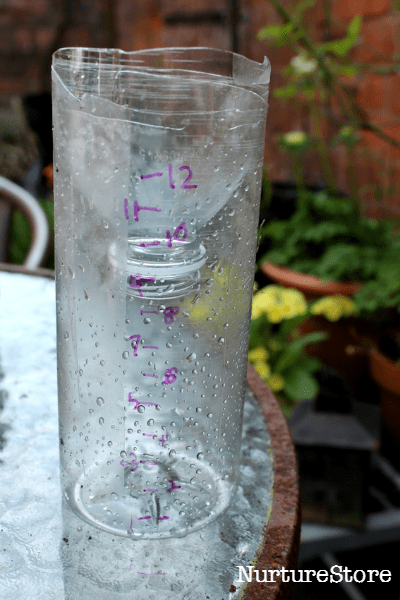
Track the weather
Check the weather report each day to learn about temperature and wind speed. Use the Fun Math printable weather spinner to help talk about the weather each day.
Learn location skills by working out where north, south, east, and west is in relation to your house and seeing where the wind is blowing from.
You could even set up a rain gauge and track the weather on a graph.
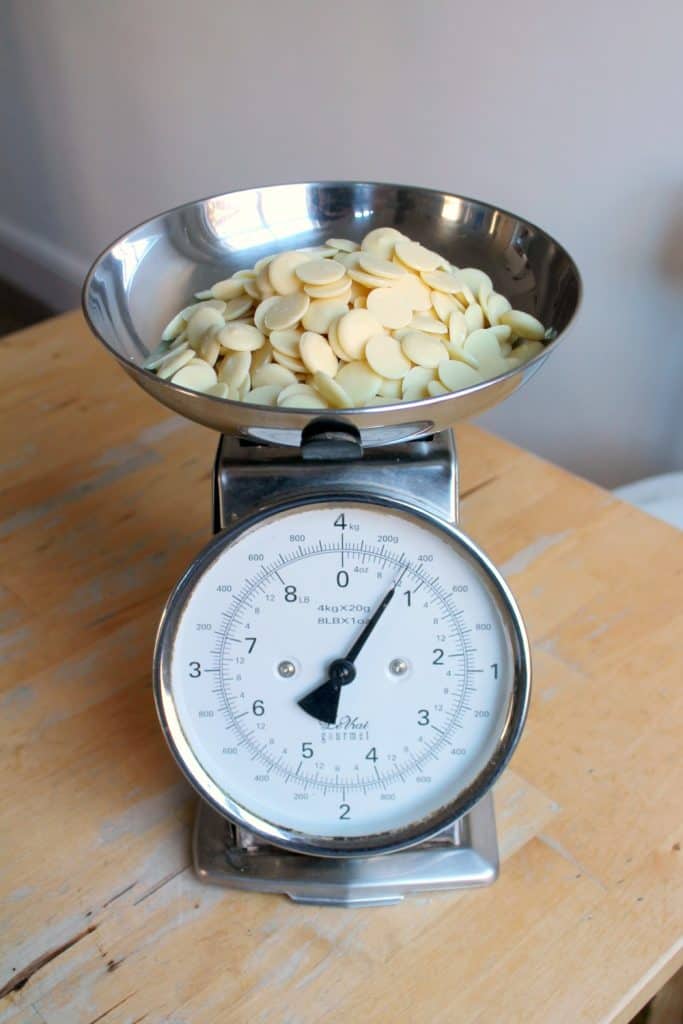
Learning about measurement
Involve your children in cooking and baking and they will be learning about measurements of weight and volume as they pick up the useful life skill of preparing their own food.
You can use scales, cups, spoons of different sizes and measuring jugs.
You can also cover measurement when you garden and make crafts together.
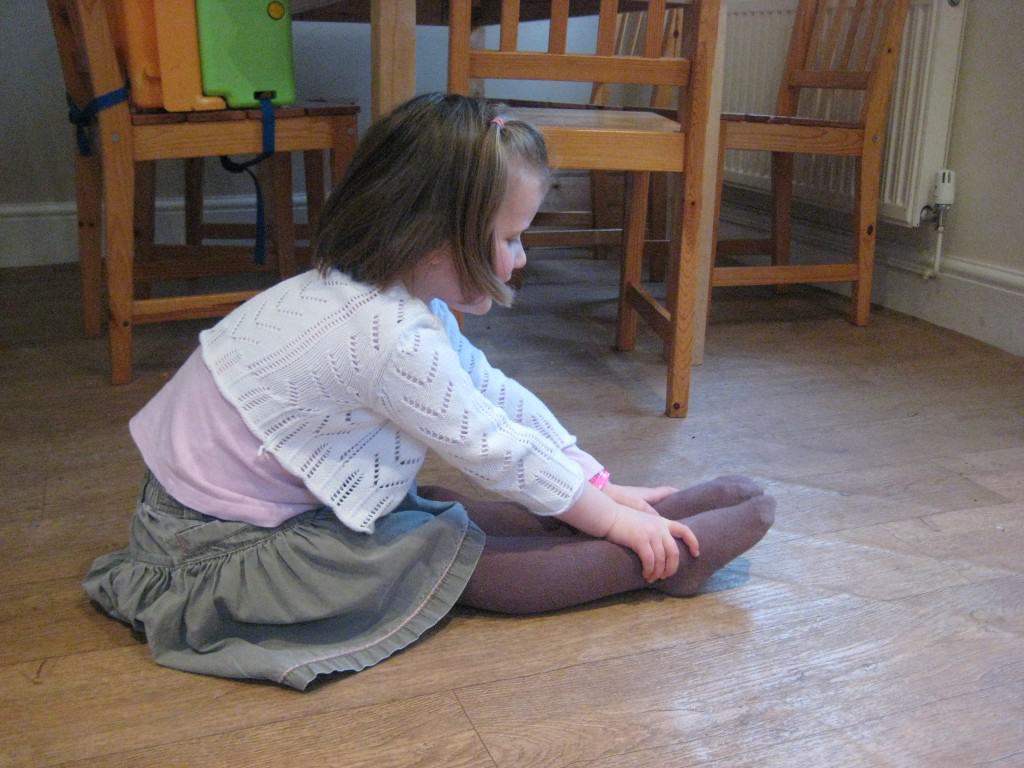
Use exercise for math skills
If you’re doing daily exercise, time it. Count how many stretches or repetitions you do. Skip count star jumps. Use the Fun Math activities based around the number 100 to time and count all the things you can do in 100 seconds.
All these everyday math activities work together to show your children why math is important and help them learn and practice vital skills in the real world.
Transform your teaching with Fun Math
The Fun Math series gives you a math curriculum that is easy to teach and highly effective.
Children love these lessons because they are engaging and fun.
You’ll have a clear set of ready-made math lessons and activities that are simple to lead using our step-by-step lesson guides, and which children really understand.
Be the best math teacher and boost your children’s confidence and skills with Fun Math.
See more and transform your teaching here.


